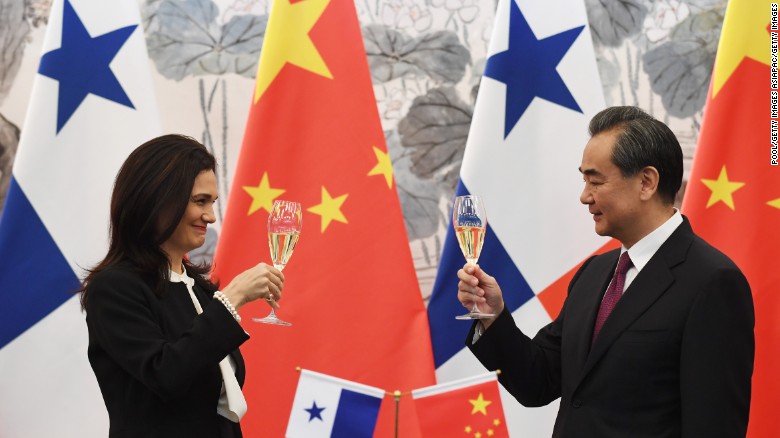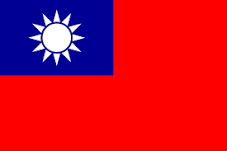Anger in Taiwan as China poaches another diplomatic ally
Taiwan has expressed "deep anger and regret" after losing one of its few diplomatic allies, deepening the island's international isolation.
China announced Tuesday that it had established ties with Panama after the central American country signed a joint communique and stressed it would not maintain any official ties with Taiwan.
"It yielded to Beijing because of economic benefits, did a diplomatic turn in a very unfriendly way and deceived the government of the Republic of China (Taiwan) until the last minute," David Lee, Taiwan's foreign minister said.
He said Taiwan was also cutting its diplomatic ties with Panama to "safeguard" the "nation's sovereignty and dignity."
China views Taiwan as an integral part of its territory that is to be taken by force if necessary. Beijing has missiles pointed at the island.
Panama's moves leaves Taiwan with only 20 diplomatic allies in the world, mainly small nations in Latin America and the Caribbean. In December 2016, the African island nation of Sao Tome and Principe switched recognition to Beijing.

Panama's Foreign Minister Isabel de Saint Malo and Chinese Foreign Minister Wang Yi drink a toast after signing a joint communique on establishing diplomatic relations during a press briefing on June 13, 2017.
China and Taiwan -- officially the People's Republic of China and the Republic of China -- separated in 1949 following the Communist victory on the mainland after a civil war.
The two sides have been governed separately since, though a shared cultural and linguistic heritage mostly endures -- with Mandarin spoken as the official language in both places.
In 1971, Taiwan -- officially the Republic of China (ROC) -- was forced to withdraw from the United Nations after the General Assembly passed a motion recognizing the People's Republic of China as the only lawful representative of China to the UN.
Many other countries followed suit, including the United States, which switched diplomatic recognition to the PRC in 1979 but has maintained unofficial ties with Taiwan, an important ally in the region.
US President Donald Trump set off a diplomatic firestorm before his inauguration by calling Taiwan's President Tsai Ing-wen -- the first contact between a US president or president-elect and Taiwan's leaders.
However, Trump has since affirmed US commitment to the One China policy -- a set of protocols that have governed US-China relations for decades.
Panama gave no specific reason for the split but China has been investing in the country, which is home to Panama canal -- a crucial shipping route.
"I have ratified it because it is the correct path for the country," said Panama President Juan Carlos Varela in comments carried by Reuters.
News Courtesy: www.cnn.com











